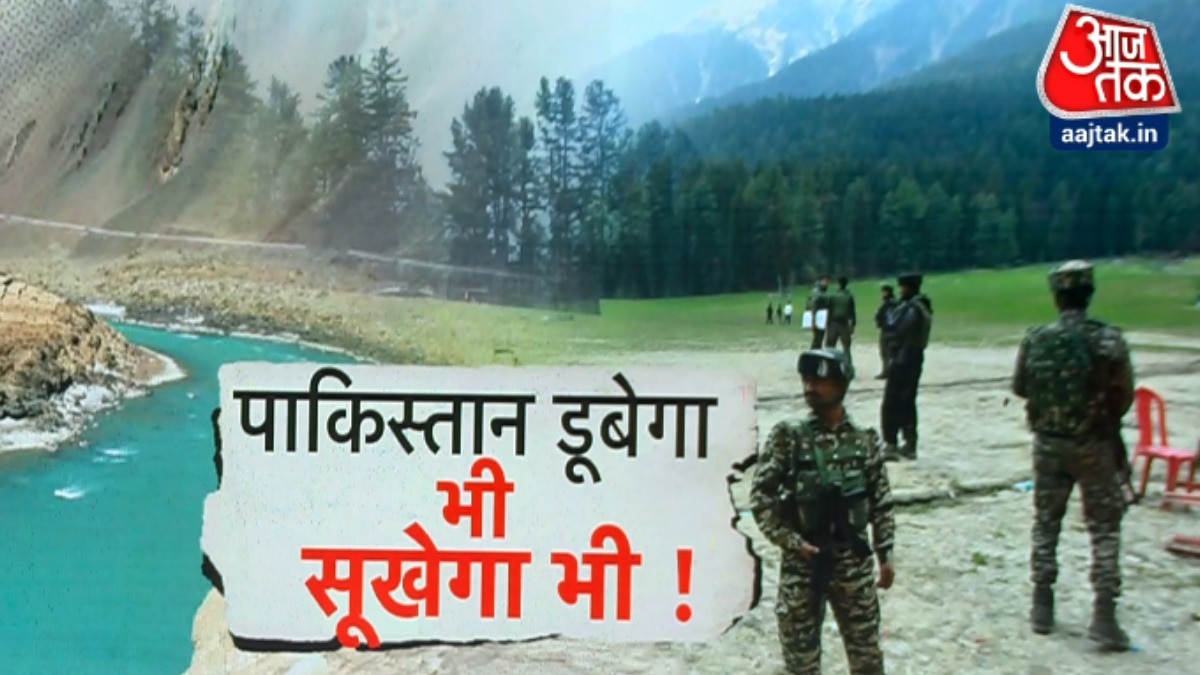India’s Tough Stance on Indus Water Treaty Triggers Panic in Pakistan Amid Water Crisis
India-Pakistan Water Tensions: The Resurgence of the Indus Water Treaty Debate
The Indus Water Treaty (IWT), signed between India and Pakistan in 1960, has once again become a focal point of contention between the two countries. The recent terror attack in Pahalgam has exacerbated perceptions on both sides, leading to growing tensions over water rights and resources. As Pakistan grapples with its pressing water crisis, rhetoric from its political and military leadership has underscored their growing alarm over what they term India’s "water bomb."
The Context of the Indus Water Treaty
The IWT was established to regulate the sharing of river waters from the Indus River system, which primarily comprises the Indus, Jhelum, and Chenab rivers flowing into Pakistan, while granting India control over the Ravi, Beas, and Sutlej rivers. This treaty has been hailed as one of the most successful international water agreements of its time, yet it has faced mounting pressures in recent years, particularly with the shifting geopolitical landscape in South Asia.
- Key Elements of the Treaty:
- Allocation of Rivers:
- India Controlled: Ravi, Beas, Sutlej
- Pakistan Controlled: Indus, Jhelum, Chenab
- Dispute Resolution Mechanisms: Established procedures for addressing grievances.
As the impacts of climate change exacerbate water scarcity in the region, the once stable dynamics of IWT are being challenged, leading to calls for revisiting its terms amid rising nationalism and militaristic postures.
Pakistan’s Urgent Call for Water Security
Recent statements from Pakistani parliamentarians have portrayed a dire picture of water scarcity in the country. Syed Ali Zafar, a member of the National Assembly, candidly admitted that ignoring water management could lead Pakistan to "starve." He emphasized, “The Indus Basin is our lifeline. Ninety percent of agriculture depends on this water. We have a ‘water bomb’ that needs to be defused.”
This sentiment is echoed by other officials, including Syed Shibli Faraz, who emphasized the seriousness of the water issue, urging the government to prioritize water diplomacy. Meanwhile, military spokesperson Ahmad Sharif Chaudhry issued a veiled threat, stating, “If you stop our water, we will stop your breath,” illustrating the heightened tensions.
Strategic Implications of Water Scarcity
Experts and political analysts argue that the ongoing water crisis in Pakistan has the potential to escalate tensions into conflict. The former president of the World Bank’s water division recently noted that while the 20th century was defined by oil wars, the conflicts of the 21st century may revolve around water. With Pakistan now listed among the world’s top water-scarce countries, the stakes are incredibly high.
- Factors Contributing to Water Scarcity:
- Population Growth: Increasing demands on limited water resources.
- Climate Change: Altering rainfall patterns and decreasing river flows.
- Poor Management: Ineffective water management and infrastructure.
The urgency for Pakistan to secure its water rights is palpable, with voices from parliament pushing for immediate dialogue regarding the management of shared water resources.
India’s Firm Stance on Terrorism and Water
In recent weeks, India has signaled a tougher line on the relationship between water rights and Pakistan’s support for terrorism. Indian Foreign Ministry spokesperson Randhir Jaiswal made it clear: “As long as Islamabad does not take concrete steps against terrorism, the Indus Water Treaty will remain suspended.” This assertion has introduced a new dynamic in the discussions, tethering water resources to Pakistan’s actions against militancy.
Moreover, India’s assertion that “blood and water cannot flow together” captures the current sentiment—in essence, Pakistan must act on terrorism if it hopes to benefit from the water resources from the Indus River system.
Conclusion: A Future in Limbo?
The evolving situation surrounding the Indus Water Treaty highlights the intricate connections between water security, national security, and geopolitical stability in South Asia. As both countries navigate these treacherous waters, it is critical for them to consider the broader implications of their actions.
In an era where every drop of water counts, the path forward may require innovative diplomatic engagements and frameworks that address both immediate needs and long-term sustainability. As Pakistan’s tenseness grows, only time will reveal how these dynamics will shape the future of Indian-Pakistani relations and the fate of millions dependent on these vital water sources.
In this context, the world watches, understanding that the real battles of the 21st century may well be fought not just on battlefields, but at water’s edge.





